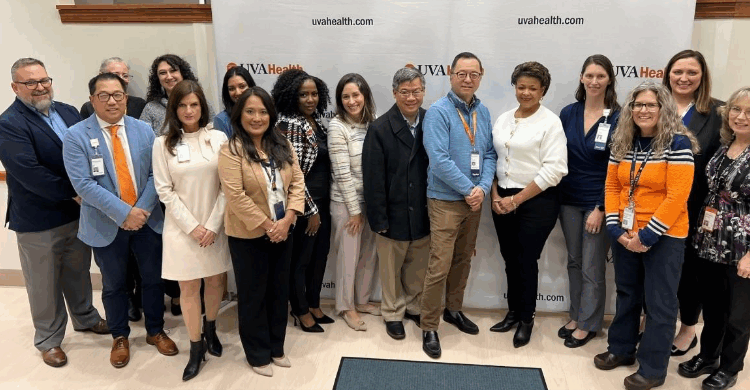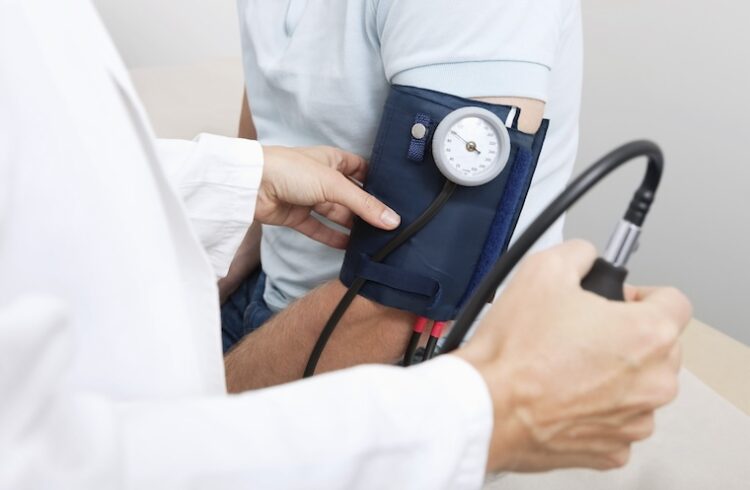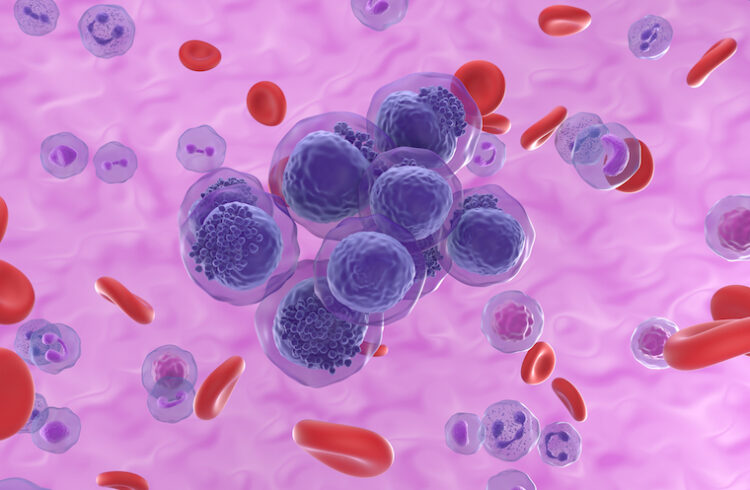
The Claude Moore Building at the University of Virginia School of Medicine
The University of Virginia School of Medicine’s work developing lifesaving treatments through innovative biomedical research has been recognized with a large increase in National Institutes of Health funding, according to a new report.
The School of Medicine’s NIH funding increased from $155.1 million in 2022 to $174.2 million in 2023, according to the Blue Ridge Institute for Medical Research, a nonprofit that tracks NIH funding. UVA rose from 21st to 19th in NIH support among all public schools of medicine.
Eleven School of Medicine departments improved their funding rankings in 2023, and a host of departments are highly ranked among their specialties:
- Three departments rank among the top 10 public medical schools: Biomedical Engineering (#1), Molecular Physiology and Biological Physics (#5), and Public Health Sciences (#9).
- 13 departments rank among the top 20 public medical schools: The three departments listed above are joined by Neuroscience (#12), Pharmacology (#13), Anesthesiology (#17), Surgery (#17), Neurology (#17), Orthopedic Surgery (#17), Ophthalmology (#18), Pediatrics (#18), Medicine (#19), and Microbiology (#20).
- All eight research departments rank among the top 25 public medical schools: Biomedical Engineering (#1), Molecular Physiology and Biological Physics (#5), Public Health Sciences (#9), Neuroscience (#12), Pharmacology (#13), Microbiology (#20), Cell Biology (#22), and Biochemistry and Molecular Genetics (#24).
“We are so proud of and thankful for our talented researchers who have expanded our research portfolio through their commitment to breakthrough discoveries that lead to innovative care for the patients we serve,” said Melina R. Kibbe, MD, dean of the UVA School of Medicine and chief health affairs officer for UVA Health.“This sets the stage for the continued expansion of our research enterprise, as outlined in our 10-year strategic plan, to help us better care for patients.”
A key pillar of the 10-year strategic plan is the Paul and Diane Manning Institute of Biotechnology, which will build on strong suits of UVA’s research in groundbreaking fields that include cellular therapy, gene therapy, nanotechnology and drug delivery. UVA broke ground in December for the 350,000-square-foot institute at Fontaine Research Park, which is backed by a generous $100 million donation from philanthropists Paul and Diane Manning, $50 million from the Commonwealth of Virginia and $150 million from UVA. The Governor’s proposed budget, currently under consideration by the General Assembly, contains an additional $55 million for the institute. The initial occupants of the institute are scheduled to move in by late 2026.
“As the latest report from the Blue Ridge Institute for Medical Research shows, our researchers are already performing outstanding work to add to our scientific knowledge and translate that into new and better treatments for patients,” said K. Craig Kent, MD, UVA Health’s chief executive officer and UVA’s executive vice president for health affairs. “The Paul and Diane Manning Institute of Biotechnology is the backbone of our plans to ensure our researchers have everything they need in the years ahead to build on their efforts to discover new treatments that will benefit patients across Virginia and beyond.”



